Date view
To book a course you need to be logged in. Would you like to create an account?
Twilight CPD
 Booking Now
Booking Now
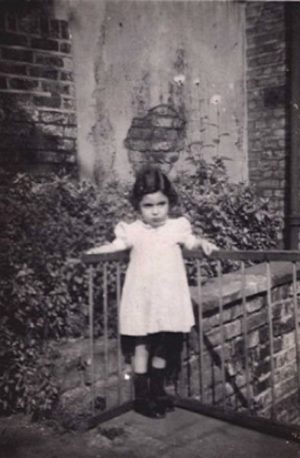
I wonder where I will be tomorrow (IWWIWBT) has at its core the principle that ALL learners are entitled to quality Holocaust education. The resource is intended for lower attaining learners in Key Stage 3 and those cohorts described as ‘hard to reach’.
Sorry, there are no upcoming dates for this course currently scheduled. To request a date in your area contact us at
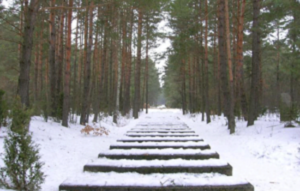
In the summer of 1942, a new camp was opened in German-occupied Poland. Located in a forest, north of the city of Warsaw, ‘Treblinka’ became – for a time – the deadliest place on earth, with around 900,000 people killed there. Despite this notoriety, Treblinka is unlikely to be the first camp which would come to mind for most people whilst our research shows it is beyond the consciousness of most young people. In this session, we will explore a moment in time in the history of the camp and ways in which the story of Treblinka can be explored with students.
Join Dr Andy Pearce for an hour of practical and thought-provoking CPD via Zoom. Password/login details for the session will be distributed to participants 24 hours before the session.
Sorry, there are no upcoming dates for this course currently scheduled. To request a date in your area contact us at
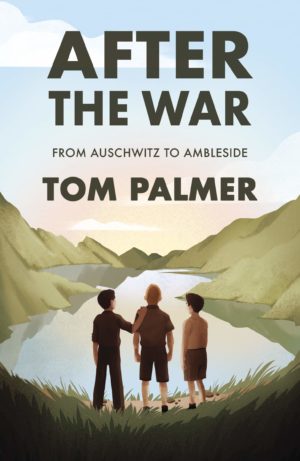
Tom Palmer’s novel ‘After the War. From Auschwitz to Ambleside’ tells the powerful story of the Windermere children.
‘After the War’ is a carefully researched novel based upon the testimonies and experiences of child survivors of the Holocaust. The novel allows students to explore the persecution suffered by these young survivors through a compelling story of friendship and hope.
Secondary teachers are invited to join us for this live online event with the author as we discuss this important work of historical fiction and model how the Centre’s new lesson materials can support you in exploring some of the issues it raises with your KS3 students.
Join the Centre’s Helen McCord for an hour of discussion, practical and thought-provoking CPD via Zoom this Holocaust Memorial Week. Password/login details for the session will be distributed to participants 24 hours before the session.
* * * This session is aimed at secondary teachers * * *
Sorry, there are no upcoming dates for this course currently scheduled. To request a date in your area contact us at
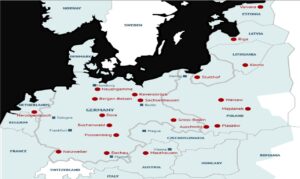
Sorry, there are no upcoming dates for this course currently scheduled. To request a date in your area contact us at
In this session, you will explore how best to use photographic evidence in your lessons on the Holocaust. How can we support our students to deconstruct them? In what ways can they be problematic? What kinds of identification are appropriate in the classroom? How can we support students through the ‘rupture’ – the sudden awareness of atrocities facilitated by a photograph?
Sorry, there are no upcoming dates for this course currently scheduled. To request a date in your area contact us at
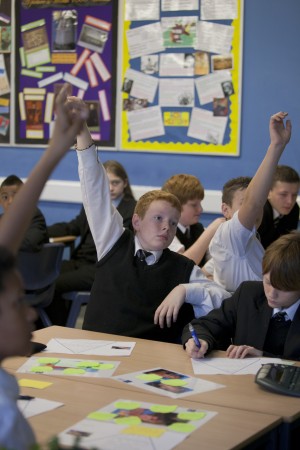
Antisemitism is a real and present threat in our contemporary world and in the lives of our young people. Contemporary antisemitism has many continuities with historic antisemitism in the medieval world and in Nazi Germany, however, it has distinctive forms and features of its own. This online seminar will explore some key forms and features of contemporary antisemitism, and provide a forum for reflection on how to address antisemitic hate speech and prejudice in and through education.
Sorry, there are no upcoming dates for this course currently scheduled. To request a date in your area contact us at
Exploring the often-neglected history of the mass shooting of around 2,200,000 people in Eastern Europe, known as the ‘Holocaust by bullets’.
Sorry, there are no upcoming dates for this course currently scheduled. To request a date in your area contact us at
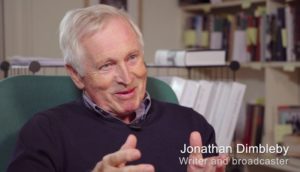
This session, based upon an online self-study series of lessons for KS3 students, focuses upon the ‘Dimbleby dispatch’, the now famous radio broadcast by Richard Dimbleby in the days after the liberation of Bergen-Belsen by British Forces.
Starting by investigating ‘What was Bergen-Belsen like?’ and exploring what liberation meant to both survivors and British Forces, the material go on to consider the dilemma facing the BBC, should they broadcast Dimbleby’s account of Belsen’s horror? This short CPD session will signpost the materials and feature an interview with Jonathan Dimbleby – reflecting on his father’s dispatch, the significance of Belsen and encourages students to develop English language skills when considering the quality of the dispatch to enhance their media literacy skills. This short CPD will encourage reflection upon the dispatch’s relevance, nearly76 years on, in a world of ‘fake news’ and of the possibilities of it being a lens to explore safeguarding.
Join Nic Wetherall for an hour of practical and thought-provoking CPD via Zoom. Password/login details for the session will be distributed to participants 24 hours before the session.
Sorry, there are no upcoming dates for this course currently scheduled. To request a date in your area contact us at
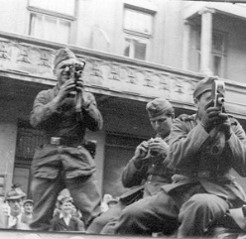
Join us on the 22nd April for a bespoke session led by Barbara Warnock of the Wiener Library. In creating Schemes of Learning and engaging lessons on the Holocaust, it can be hard sometimes to know where to turn to for thought-provoking historical sources. Barbara will showcase sources that you can access from the library that speak to some key themes in Holocaust education, such as life in the ghettos, resistance, and the roles people played during the Holocaust. We would love to see you in this exclusive ‘tour’ of the archives and hope you will be inspired to use some of them in creative ways in the classroom.
Sorry, there are no upcoming dates for this course currently scheduled. To request a date in your area contact us at
The Centre’s landmark Key Stage 3 textbook Understanding the Holocaust: How and why did it happen? is the only research-informed textbook on the Holocaust in the world. During this CPD, participants will learn more about the research which has informed the creation of this textbook, discuss its pedagogy, and acquire insights into how it can be used in the classroom.
Sorry, there are no upcoming dates for this course currently scheduled. To request a date in your area contact us at

Sorry, there are no upcoming dates for this course currently scheduled. To request a date in your area contact us at
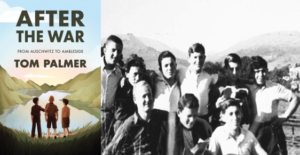
“It is the most amazing story about what British communities can do for foreign refugees and the gift they give.” Robert Rinder, Who Do You Think You Are, BBC One, August 2018.
On the 14th August 1945, 300 Jewish child survivors of the Holocaust arrived in the UK. They would spend time near Lake Windermere in the Lake District as part of a programme of recovery and recuperation. These young people were some of the very few children from across Europe to have survived the Holocaust. Without exception each of them had endured unimaginable trauma and difficulties and most of them would find very few survivors from their wider families.
“My coming to England brought me back to civilisation. It gave me the desire to want to learn and catch up with the studies I was deprived of during the war years. It made me believe again that people were also humane, and not only beasts.” Joseph Ribo, child survivor.
Wars and genocide create refugees, people needing help, safety and refuge from persecution and murder. ‘The Boys’ needed significant help to rebuild their lives after the war. Their experiences at Windermere were the start of this long process. The compassion that they were shown empowered them to survive their trauma and begin to live again.
Join us on the 21st June as we discuss how we can explore this important history with our young people.
Sorry, there are no upcoming dates for this course currently scheduled. To request a date in your area contact us at
The Beacon School Programme has impacted on hundreds of schools over the past ten years, supporting them to embed high-quality research informed Holocaust education. As the Centre’s flagship, it has impacted of thousands of students and developed a community of expert teachers.
At this event, hosted as a collaboration with Royal Wootton Bassett Academy’s Empowering Young People to Change the World Conference 2023, we will explore the role of the Centre’s Beacon School Programme in empowering schools. Hear from Beacon School Lead Teachers and SLT links about the impact on their schools, how they developed innovative Holocaust education and the value of their partnership with UCL. There will also be an opportunity for questions if you are considering your own Beacon School journey.
Sorry, there are no upcoming dates for this course currently scheduled. To request a date in your area contact us at
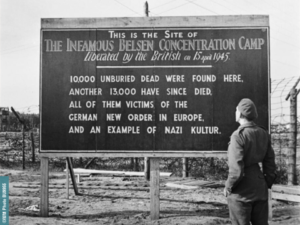
Sorry, there are no upcoming dates for this course currently scheduled. To request a date in your area contact us at
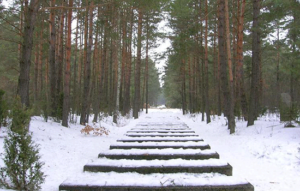
Within popular consciousness the Holocaust is often characterised by the application of modern industrial technology, the ‘factories of death’ for the purpose of mass murder. As much as there is truth in this, the reality is more complex and more discomforting. In this lesson students make a historical enquiry into Treblinka and discover the reality of genocide is not as straightforward as we would believe.
Sorry, there are no upcoming dates for this course currently scheduled. To request a date in your area contact us at
- How can we move young people without shocking or traumatising them?
- How can we capture students’ interest in the Holocaust?
In this workshop, through the interrogation of an authentic artefact, teachers first encounter Leon Greenman, an Englishman, living in the Netherlands, who was deported to Auschwitz-Birkenau with his wife and child. Leon’s story provides a clear thread throughout our programme.
This one hour workshop can be run as a Twilight, INSET or short session at a time to suit your school.
Sorry, there are no upcoming dates for this course currently scheduled. To request a date in your area contact us at
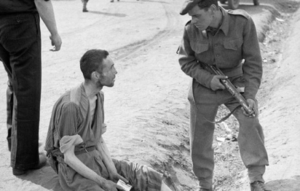
What do most students think the British government did when it found out about the Holocaust? Come and find out at this session, and look at ways of using evidence from a range of archives with students to piece together this fascinating aspect of British and Holocaust history.
Sorry, there are no upcoming dates for this course currently scheduled. To request a date in your area contact us at
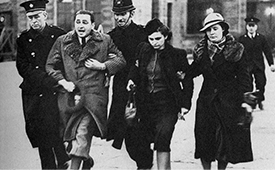
Our research shows that young people are often mystified by the targeting of Jews for mass murder – this activity shows how teachers can work with the film Roots of antisemitism to uncover the origins of this ‘longest hatred’, and to explore continuity and change from medieval anti-Judaism to modern antisemitism.
Sorry, there are no upcoming dates for this course currently scheduled. To request a date in your area contact us at
Special events
 Booking Now
Booking Now
This session will take place on Zoom from 16:00 – 17:00. After booking your place, you will be sent joining instructions in the week leading up to the session.
In this short online CPD session we will help frame with alumni how Beacon Schools can creatively, innovatively mark and engage in Holocaust Memorial Day every January. We will launch a short tutor time activity pack, whilst pointing to ways in which Holocaust Memorial Day might be an opportunity as a whole school community to reaffirm and highlight your Beacon work with students, staff, parents and wider community.
Joined by Alex Blake of the Holocaust Memorial Day Trust, we will offer a range of strategies or approaches that may inform, inspire or empower you, Beacon SLT links and colleagues to participate as a school in marking HMD, and alert you to some of their regional and national projects and initiatives that might also feature in your collective school endeavour.
Sorry, there are no upcoming dates for this course currently scheduled. To request a date in your area contact us at
Sorry, there are no upcoming dates for this course currently scheduled. To request a date in your area contact us at
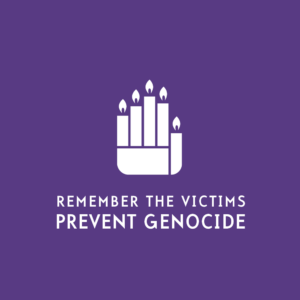
The ‘Dialogues in Holocaust Education’ will mark UN Genocide Prevention Day with a special online session on Monday December 9. We will be joined by a survivor of the 1994 Genocide against the Tutsi in Rwanda, who will speak about their experiences. A panel of teachers will then discuss the possibilities and pitfalls of teaching about the Holocaust and other genocides before the session concludes with students from a group of UCL Beacon Schools talking about a remarkable genocide prevention project that they have been working on. We hope that you will be able to join us for what should be a useful and inspiring occasion.
This session begins at 4.00pm.
Sorry, there are no upcoming dates for this course currently scheduled. To request a date in your area contact us at
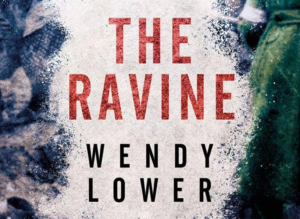
The ‘Dialogues in Holocaust Education’ series continues with a session that will deepen and complicate our understanding of the Holocaust. We are delighted to be joined by historian Professor Wendy Lower, John K. Roth Professor of History and George R. Roberts Fellow at Claremont McKenna College. Professor Lower will be speaking about her groundbreaking book, ‘The Ravine: A Family, a Photograph, a Holocaust Massacre Revealed’, detailing how her investigation into a single image unlocked the deeply personal stories that lay within. The session will be important for educators not only interested in the story behind the photograph but also how Professor Lower’s remarkable research may be used in the classroom.
This session begins at 4.00pm.
Sorry, there are no upcoming dates for this course currently scheduled. To request a date in your area contact us at
Map view
Key
- Additional CPD workshops
- Beacon School Lead Teachers programme
- Core CPD courses
- Initial Teacher Education
- Online CPD
- Special events
- Special events and Seminars
- Follow us
-
Don't see a date that suits?
Stay updated
Sign up for eNews for future course alerts.
-
Request a special course or event
Special request
“Fantastic CPD… It has given me super ideas to implement into our curriculum.”
You may also be interested in...
-
Educational materials for engaging all learners
The UCL Centre for Holocaust Education offers dynamic, effective and engaging educational materials designed specifically to address the classroom challenges revealed by our national research.

 Learn more
Learn more